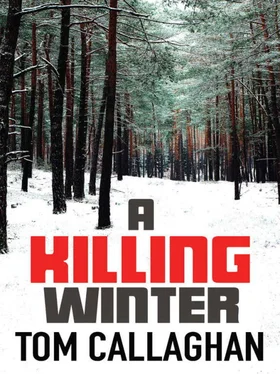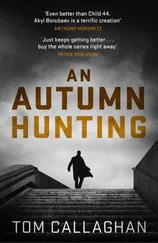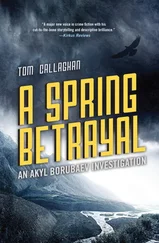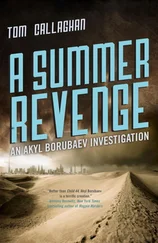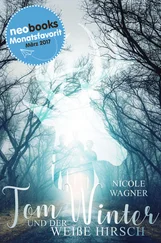I shut my eyes against the glare of the overhead lights and tried to remember when I had last slept properly. Almost forty-eight hours, but it was my soul that was exhausted. Anyway, I’d have for ever to sleep, once I joined Chinara and Yekaterina, and all the others I’ve attended over the years.
‘Here.’
Usupov was shaking my shoulder, and I realised I’d been dozing on my feet.
‘Why don’t you go home, sleep for a while? Even Tynaliev can’t expect you to work without a break.’
I shook my head.
‘That’s exactly what he does expect,’ I replied, rubbing my face as if to massage the weariness out of it. I remembered the pills stashed back home, pharmaceutical speed. Just enough to keep me up for a few more hours, to try to work out where I might find a lead, something to report back to the Chief, and for the Chief to tell the Minister.
I shook Usupov’s hand, told him what time the undertakers would arrive, and took a copy of his report away with me. I decided to walk back to the apartment; another dawn spent trudging through the snow, trying to work out a pattern, sifting my thoughts to see what links I could make.
Usupov shut and locked the morgue door behind me, and I looked around to see what the new day would bring. The snow had stopped, the wind had died down, and it was brutally cold, in the minus twenties, at a guess. I didn’t want to imagine how cold the Torugart Pass would be. It was early yet, but I’d be able to buy a couple of chicken samsi on the way home. The thought made me realise how hungry I was. A case like this, I might go for days without a hot meal, but wherever you turn in my country, there’s a bottle of vodka to tempt you.
It was getting light when I got back to my khrushchyovk apartment block. As usual, the main entrance door was ajar. People either forget the security code or can’t be bothered to use it. The lift wasn’t working either, so I climbed the three flights of concrete stairs, past the rubble and clutter that communal spaces always acquire. What wasn’t so usual was that the doors to my apartment were open. I stopped, waited to get my breath back, listened. The TV was playing, which was strange since I live on my own. I took off my boots and unholstered my Yarygin, wondering why I always seemed to enter a room with a gun in my hand. I pushed the wooden door further open, and peeked in. The kitchenette was empty, but the steam rising from the kettle told me someone was making themselves thoroughly at home.
I walked towards the main room, my stockinged feet making no noise on the wooden floor. I reached the door, and braced myself to dive through and start shooting.
‘Come in, Inspector, I’m in here. And put the gun away.’
I decided to disobey the second part.
‘I know they pay you cops fuck all, but there’s no excuse for drinking this shit pretending to be tea. And surely you can afford a decent samovar?’
‘Hello, Kursan,’ I said, putting my gun away. ‘Since when did you become a tea drinker?’
‘Since I couldn’t find a proper drink anywhere in this dump.’
Kursan Alymbayev grinned at me, his white felt kalpak hat tilted at a jaunty angle on his head, gold tooth glinting, stubble white along his jaw. A face as creased and stained as an old waistcoat, seventy something years old, still strong enough to lift a horse, punch a hole through a door, coax the dress off a reluctant babushka . First Tynaliev and now Alymbayev: it was my week for encountering hard men. But while the Minister is firmly on the side of law and order, Kursan hasn’t done anything legal since long before independence. Smuggling meat from China, marijuana to Uzbekistan, BMWs stolen to order from Almaty, Kursan knew every border crossing, every mountain pass, every corrupt guard. I couldn’t help admiring his talent for survival. And since he was Chinara’s father’s half-brother, he was family as well.
Kursan jabbed a grimy thumb at his mouth and raised an eyebrow. I opened the window and brought in the bottle that had been sitting on the ledge. Kyrgyz hospitality always overrules tiredness. I handed him the bottle and a glass, and watched as he took a good shot, then lit a foul-smelling home-made papirosh .
‘You?’
‘Not this morning.’
‘Getting old, brother. This stuff keeps you young, strong. Ask the young girls.’
He cupped his balls and leered, before pouring another shot to follow the first.
‘Word gets around fast. I assume you’re not just here to finish my vodka.’
‘Well, if you insist. Sure you won’t?’
I shook my head. Seeing my face, Kursan’s expression changed to one of concern.
‘Of course. Forgive me. You don’t get over a death like that in a hurry.’
The memory of the dead woman rose up before me, the unborn child curled up inside her, a question mark without an answer.
‘I know you loved her, brother. The way you love once in a lifetime.’
I realised with a shock that Kursan was talking about Chinara, and felt sick to my belly at the way she’d been supplanted in my thoughts. Kursan walked over to the wall unit and picked up the one photograph of Chinara that I had on display. Taken a couple of summers ago, from the top of the Ferris wheel at Bosteri, by Lake Issyk-Kul. Laughing, her hair caught in the wind, sunlight dazzling off the lake. Joyous and carefree. Alive.
Kursan stared at the photo for a moment, his face unreadable, and then carefully replaced it on the shelf.
‘I’m here to help you. About the Minister’s daughter.’
First Vasily, now Kursan; they must both have a squealer at the station with a mouth working overtime. I sometimes wonder if I’m the only law not on the take.
‘It’s not what you’re thinking. It’s been a long time since anyone at Sverdlovsky told me anything other than to fuck off.’
He grinned lopsidedly, and poured a small shot.
‘Well, Kursan, if it’s not a uniform looking for breakfast money, what do you know that I don’t?’
He put the glass down, without taking even a sip, walked towards me, put his massive hands on my shoulders. I could smell his sweat, the sweetness of vodka, the tang of his papirosh . He stared at me, unblinking, his face as serious as death. When he did speak, it was in a whisper so low I could barely hear him.
‘I can tell you where the dead child came from.’
Late morning, and Kursan and I were on the road to Karakol, pretty much the other side of Kyrgyzstan, an eight-hour drive at the best of times. Which, being winter, it wasn’t. We were crawling along, Kursan driving, which was fine by me.
‘Relax, I know what I’m doing, there was one time I brought a cargo of furs in from Tashkent over to Osh. No paperwork, you understand. The snow was as thick as an Uzbek’s neck; I couldn’t see out of the windscreen, so I just stuck my head out of the window. Try driving like that for five hours!’
We’d passed Bosteri about an hour ago, so we were skirting the northern shore of Lake Issyk-Kul, about halfway to Karakol. I’d grabbed a couple of hours’ sleep, left a cryptic message for the Chief, then we’d set off. A ment drove us as far as Tokmok where, at Kursan’s insistence, we changed cars, into an elderly but serviceable BMW.
‘They all know this car, believe me. Don’t worry about the traffic filth, I hand out enough som all year, we won’t get stopped for speeding.’
I thought that the likelihood of us going any faster than a brisk walk was pretty remote, but I didn’t want to stop Kursan in full flow.
‘I love a good mystery, but maybe you can tell me why we’re going to Karakol? Only so that, when they drag me up before the disciplinary board, I can give them some half-arsed excuse. Before Tynaliev’s men drag me up in front of him, and I lose my arse altogether.’
Читать дальше
